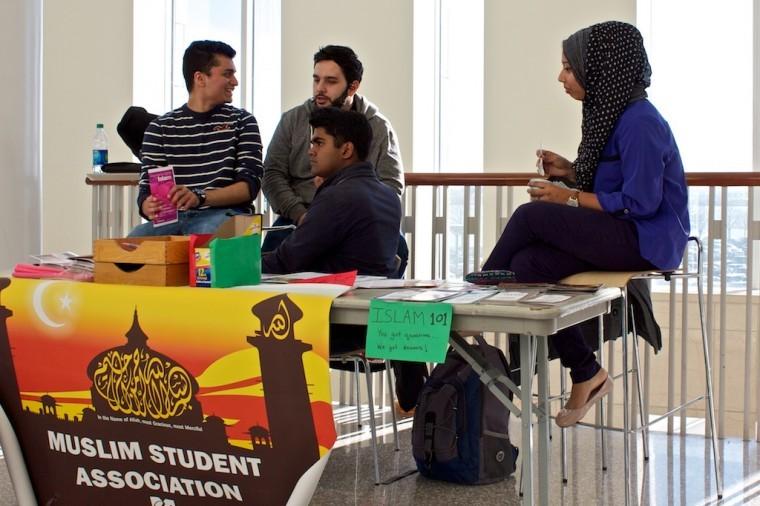The Muslim Student Association (MSA) took UMass Boston’s Enlightenment week as a chance to enlighten students with a presentation on how politics of the Western world, the middle east and Islam affected the September 11th attacks on the U.S. Consulate in Benghazi, in which four Americans were killed, including the first U.S. Ambassador to Libya, Christopher Stevens.
“I want to condemn the aggression against the American embassy in Benghazi, Libya and I really feel so sad that I have to be put in a situation where I have to stand and justify that this does not represent us (Libyans)” said Manal Benrajab, presenting a photo of herself and her father meeting Ambassador Stevens in Libya. Benrajab is an international student, from Libya, going for her MBA at UMass.
Photos of Libyans holding signs saying “Thugs and killers don’t represent Benghazi nor Islam” and “Chris Stevens was a friend to all Libyans” further reflected Benrajab’s perspective of how Ambassador Stevens’ attitude changed many Libyans’ views about Americans. She went on to say that his death was most likely the work of a small group of Libyans with an agenda.
After a short lecture on Libya’s geography, its resources, population and a brief history of its politics, the presentation moved onto the video that first sparked the protests on Sept. 11.
“The film depicted our prophet Muhammad in a very disgusting way in which we have not learned about him,” said Sara Abdalla, a political science major.
The depiction angered Muslims and Arabs because it was produced by an Israeli American and financed by an Egyptian Coptic Christian. Arab and Israeli relations have never been good. Abdalla said that depiction of any God is condemned in the Arab world, no matter if you’re Muslim, Jewish or Christian.
“When you walk into Journeys or Pac Sun you will see a T-shirt that says ‘Jesus is my homeboy’ with a picture of Jesus on it and that’s OK for Americans,” said Abdalla, talking about the huge cultural difference between America and the middle east.
The rest of the presentation, and the discussion among the attendees, focused on the theme of cultural difference and how this shared cultural ignorance between America and the middle east comes from a lack of awareness and education.
Muhammad Tayyab Inam, graduating in business management, spoke about how many Muslims hate Muslim terrorists. “More Muslims have been killed by Muslim terrorists than they’ve (terrorists) killed any other group of people,” Inam said.





















































